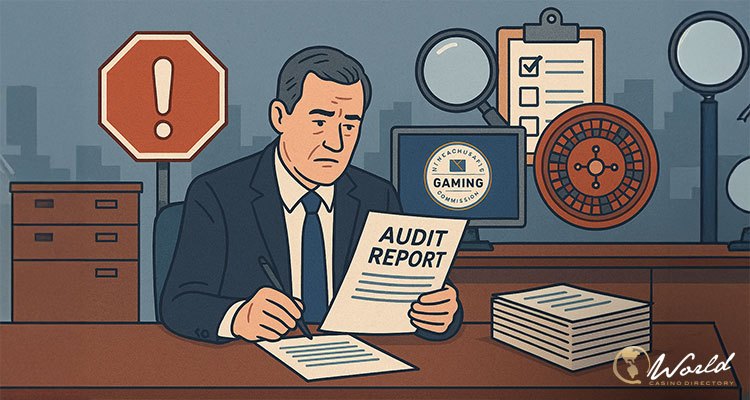The Massachusetts Gaming Commission (MGC), the state body responsible for overseeing casinos and sports wagering, is under renewed scrutiny following a detailed audit conducted by State Auditor Diana DiZoglio’s office. Covering the period from July 2020 through June 2023, the review identified several critical weaknesses in the agency’s handling of gambling advertisements, addiction prevention programs, and internal accountability practices.
The MGC, a five-member panel, regulates two resort casinos—MGM Springfield and Encore Boston Harbor—as well as the Plainridge Park slots parlor. It also manages the licensing of 13 sports wagering operators offering both in-person and online betting in the Commonwealth. While its mission is to ensure fair play and protect consumers, the audit suggested lapses that could undermine both public trust and player safety.
“Our findings reveal regulatory breakdowns that we encourage the Commission to continue addressing over the course of the next six months, at which time we will conduct our post-audit review,” Auditor DiZoglio said in a press release published by the Massachusetts Office of the State Auditor.
Shortcomings in Ad Oversight and Addiction Support
One of the most significant findings in the report (pdf) involved sports betting advertisements. State law requires that promotional materials include responsible gambling information, including the Massachusetts Problem Gambling Helpline. Yet the audit revealed that 17 ads released in the state lacked this essential information. Some were even sent to individuals under 21 or those flagged as having gambling problems, a direct violation of regulations meant to shield vulnerable groups.
The report also highlighted shortcomings in the GameSense program, which stations trained advisors in casinos to help patrons dealing with gambling-related harm. Roughly half of the GameSense staff examined lacked documentation proving they had completed required training. Without this preparation, agents were poorly positioned to offer effective assistance to people in crisis.
Public health advocates warned that failures in these two areas—responsible advertising and addiction support—risked normalizing harmful behaviors and leaving at-risk individuals without adequate protection.
Transparency Issues and Legal Disputes
Beyond consumer protection concerns, the audit also criticized the MGC’s internal practices. Investigators found no established procedures for reviewing or approving employee settlement agreements. The absence of oversight raised alarms that public funds could be used to quietly resolve workplace misconduct claims, reducing transparency and eroding public confidence in the commission.
Another area of contention involved monthly win-loss statements for casino rewards cardholders. State law requires that members receive detailed mailed statements, but the MGC allowed operators to send them electronically instead. Critics argue that emails are easier to miss, potentially depriving players of the information needed to track their spending habits responsibly.
This policy shift has already led to two class-action lawsuits against Massachusetts casinos, with plaintiffs claiming they were denied the clear disclosures guaranteed under state law. The disputes underscore the tension between the commission’s regulatory responsibilities and its financial stake in the gaming industry, as the MGC receives a portion of casino revenues.
Commission Response and Next Steps
The MGC acknowledged the audit’s conclusions and pledged corrective action. Among the steps announced were hiring an external auditor to ensure sports betting advertisements meet state requirements and instituting better recordkeeping for GameSense training. Thomas Mills, a commission spokesperson, said the agency is confident that implementing the recommendations will strengthen its regulatory framework. In fact, earlier this year Jordan Maynard, Chair of the Massachusetts Gaming Commission (MGC), asked for national standards in the industry and raised concerns about the lack of oversight.
Legislators, meanwhile, are considering new restrictions on gambling advertising, though those proposals remain in early stages. Public health experts argue that tougher enforcement and clearer rules are essential, warning that leniency benefits the industry more than consumers.
The State Auditor’s office intends to revisit the issue in six months to verify whether the commission has followed through on its promises.
A Growing Market with High Stakes
The audit arrives at a time when Massachusetts’ gaming industry continues to expand rapidly. Sports betting alone generated over $600 million in revenue by mid-2025, and casino earnings climbed by double digits in the same period. Those figures highlight why effective oversight is critical: the financial scale of the industry means even small regulatory lapses can have major consequences for consumers.
For now, the commission faces pressure from lawmakers, advocates, and the public to demonstrate that it can balance the economic benefits of gaming with its duty to protect players from harm. The follow-up audit will determine whether that balance has been restored—or whether deeper reforms are needed.



